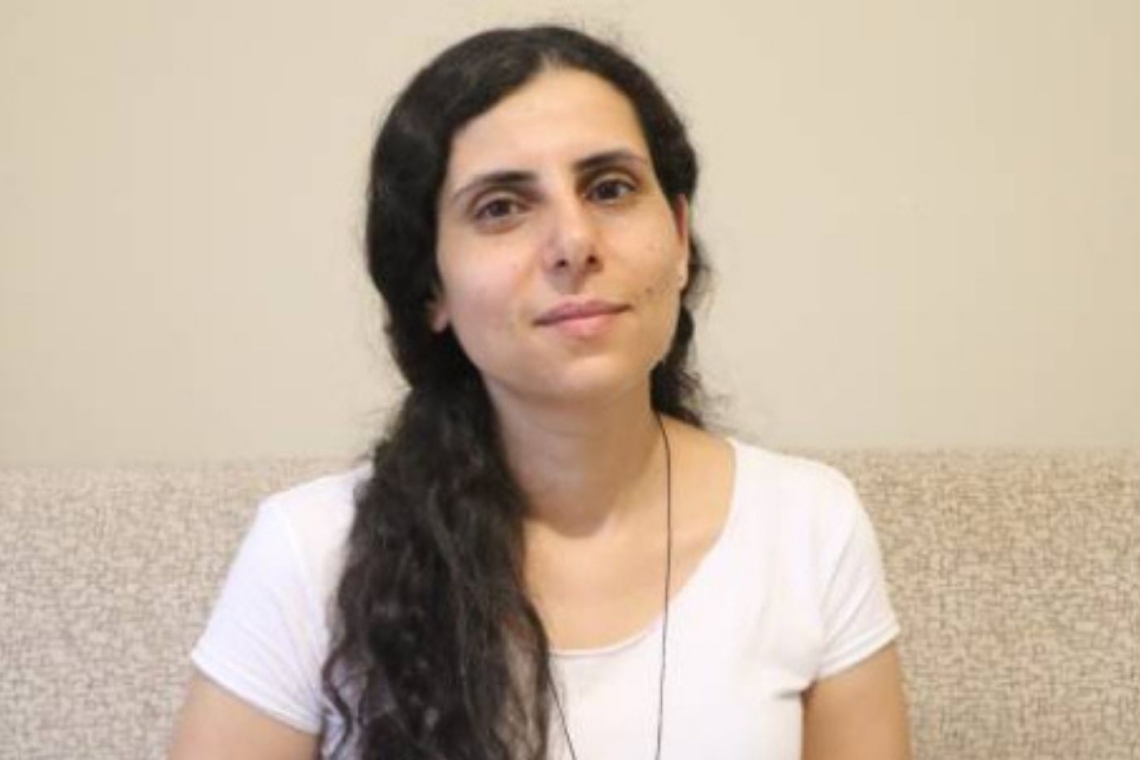Journalist and television host Reyhan Hacıoğlu, who was arrested on Jan. 20 on charges of “membership in an organization” as part of an Istanbul-based investigation, appeared before a judge for the first time today at the Van 2nd High Criminal Court. Hacıoğlu was released under judicial control measures consisting of a travel ban and a requirement to sign in regularly. The next hearing will be held on Oct. 9.
Furkan Tunçdemir
Arrested after police raid on her home
Hacıoğlu was taken into custody on Jan. 17 after a police raid on her home, and three days later, she was arrested and sent to Van Type T Closed Prison. The wiretap recordings and other evidence in the indictment consist of discussions from television programs produced by Hacıoğlu as part of her journalistic activity, interviews with her news sources, and professional contacts.
Hearing delayed by two hours
The hearing, which was expected to begin at 9 a.m., started at 10:50 a.m. due to another detainee being brought from prison in place of Reyhan Hacıoğlu. The hearing was followed by the Media and Law Studies Association (MLSA), Dicle Fırat Journalists Association, Mesopotamia Women Journalists Association, Mezopotamya Agency, Jinnews, and numerous journalists and politicians.
Hacıoğlu: Only selected phrases were picked out of context
After identity confirmation, Reyhan Hacıoğlu took the floor and said that only selective phrases had been picked out in the indictment prepared against her. “Out of dozens of programs I did over nearly two years, only ten were selected, and even then, only some words from them were picked. These weren’t the only programs I did — I also covered issues like ecology, women, and youth problems,” she said.
‘Saying Kurdistan is not a crime, it’s a historical reality’
Hacıoğlu also addressed the use of the word “Kurdistan,” one of the concepts cited as criminal in the indictment, emphasizing that the term has historical and sociological background. “From Sumerian inscriptions to Evliya Çelebi, from Sultan Selim to Atatürk, this region has been referred to as Kurdistan. We’ve heard the same word at AKP’s Diyarbakır rallies. As a journalist, it’s natural for me to use this term, but it’s being presented as a crime,” she said.
‘Solitary confinement is a human rights violation’
Hacıoğlu stated that one of the expressions presented as criminal evidence in the indictment was “solitary confinement,” explaining that this is not just a simple term but refers to long-standing systematic human rights violations in prisons. She reminded the court that solitary confinement practices are clearly cited in both national and international human rights reports. “Bringing these facts to light supposedly damages the country’s reputation. But it’s not the journalist bringing up these facts that damages the country — it’s the practices themselves,” she said.
Hacıoğlu also recounted witnessing hunger strikes during her previous time in prison, emphasizing that nine people died during that period. She said reporting on that process was not only a journalistic duty but also a humanitarian responsibility.
Referring to journalist Merdan Yanardağ’s brief detention over his comments on solitary confinement, Hacıoğlu said, “Yanardağ had said, ‘I only reminded the government of the constitution.’ I wish that same constitution applied to all of us today.”
‘News is not just the 5Ws and 1H, it’s a moral and conscientious responsibility’
Hacıoğlu stated that journalism is not merely a technical activity, and that news also carries a moral and conscientious dimension. Referring to a news story by state-run Anadolu Agency that romanticized an 85-year-old woman working at a market, Hacıoğlu said, “In that news story, we ask this question: What happened that forced this auntie to work at the age of 85?”
She concluded her defense statement by saying, “I stand behind every program I made, every word I said. Being the voice of the ‘other’ and revealing what is covered up is neither a crime nor terrorism — it is journalism itself.”
Attorney Özkaplan: There is an effort to manufacture a crime
Speaking after Hacıoğlu, her lawyer Jiyan Özkaplan stated that the 46-page indictment contained no concrete evidence. “With this indictment, I cannot debate law, I cannot discuss evidence — I’m just trying to understand the logic. They are trying to extract a crime of organization membership out of journalism. The prosecutor cherry-picked some phrases from the programs to build the indictment. For example, some books found in a house where my client does not reside were taken as evidence. My client is a journalist and must be released,” she said.
Prosecutor demanded continued detention, court ordered release
After the defense statements, the prosecutor presented their opinion, requesting the continuation of Reyhan Hacıoğlu’s detention. However, the court panel ruled for her release under judicial control measures. The next hearing is scheduled for Oct. 9.



